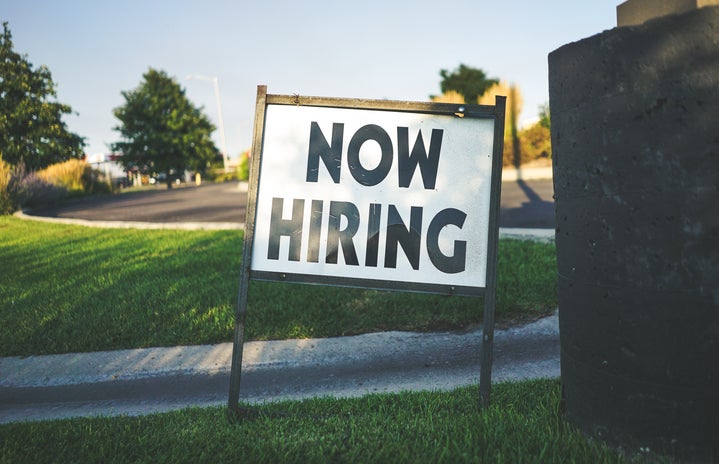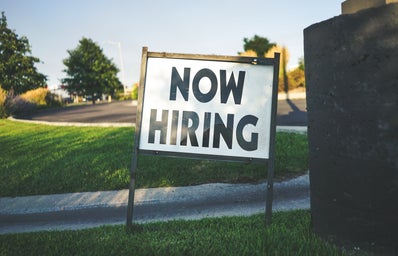When you’re approaching the end of your undergraduate years, the reality of the job hunt can sneak up on you. If you’re like me, you start to panic when looking at jobs and bail to watch Netflix or otherwise distract yourself. However, this is not a healthy way to deal with the stress of looking for jobs. Many universities provide their students with tools to help them prepare for entering the professional world, and you can generally count on a career fair as one of those resources.
Career fairs can be both incredibly overwhelming and incredibly helpful, often at the same time. Fear not, fellow panicky seniors. Here’s my very unofficial survival guide for dealing with career fairs.
1. DO research the companies that will be there ahead of time.
Often, universities will publish a comprehensive list of the companies that will be attending the career fair ahead of time. Take advantage of this information! You can develop a bit of a game plan regarding who you want to talk to and how you want to spend your time.
An important note here is to look up the companies you’re interested in. Look at their social media, their job listings, or even their reviews on Glassdoor or Yelp. Getting an idea of the company’s values and culture before stepping inside the career fair can help you further narrow down who you’re interested in talking to.
2. DON’T panic if there aren’t many companies present from your industry.
Just because there are only a few companies in your industry attending doesn’t mean you won’t have an awesome, educational experience. If nothing else, look at it as an opportunity to create connections and to network. And you never know, there may be an amazing job for you that matches your skill set and interests in a completely unexpected industry. Embrace the unknown!
3. DO bring more copies of your resume than booths you plan to see.
If I’ve learned anything from my experience, it’s that you will end up talking to way more people than you think you will, so having a ton of copies of your resume is much better than not having enough.
Pro Tip: Bring a binder or folder to keep them in. They’ll stay neat and tidy, and you’ll have a place to stash all the business cards you pick up along the way.
4. DON’T be afraid to give your resume to companies you hadn’t previously considered.
Some of the best conversations I’ve had while at career fairs have been with the companies and people I didn’t intend to meet. There’s no harm in getting your resume out there, and you never know who you might be referred to through these new connections.
5. DO dress for the occasion.
You can’t go wrong with dressing business casual, but be creative and express yourself through whatever you choose to wear. Dressing well while expressing your personality is really important at these types of events because you have a very small window of time to make a lasting impression on a potential employer. Use your wardrobe to your advantage and stand out.
6. DON’T worry about what other people are wearing or doing.
It can be very easy to fall into the trap of comparing yourself to others and start spiraling out of control. At the end of the day, you are the only person you should worry about. You control what you think about and how you feel about things, so don’t let a comparison to others worry you or get in your head. You got this, so don’t worry about anyone else!
7. DO prepare your elevator speech or pitch ahead of time.
Everyone you talk to will want to know who you are, what you’re interested in, and what your qualifications are. Introduce yourself with your pitch, don’t wait for someone to ask for it. Having a general outline memorized will save you time and energy while meeting new people, as well as saving you from forgetting any important details. Having a pitch prepared can be very impressive, especially when paired with confidence.
8. DON’T wing it.
When you don’t come prepared, your ideas can get jumbled and you may forget important things you wanted to talk about. It’s totally fine to vary your pitch based on the interests of the people you talk to, but having a general outline of what you want to say can be helpful in keeping your thoughts organized.
9. DO relax.
These events can be really stressful and overwhelming if you let them, but if you let yourself get excited you’ll enjoy it so much more. This is a fun way to practice interviewing for jobs as well as expanding your professional network. Who knows, you might even get an interview or two out of it! If you don’t, it’ll still be okay. The sun will still rise in the morning, and you will still get a job after you graduate. Career fairs do not dictate the rest of your life.
10. DON’T worry about the outcome.
Career fairs can be a major hit or a major miss. Don’t let yourself get discouraged if you don’t find any companies that interest you or don’t get an interview with one that you liked. Career fairs are not an indicator of whether or not you’ll get a job in the future or how well you’ll do in real interviews. At the end of the day, it’s just an opportunity to learn about a tiny portion of the jobs that exist in the real world.
When it comes time to start applying for jobs and expanding your network, something as straightforward as your university’s career fair can feel overwhelming. With the right preparation and mindset, you can totally handle this. So print those resumes, put on your favorite outfit, and go get ‘em!
—
Follow Brooke on Twitter and Instagram!


